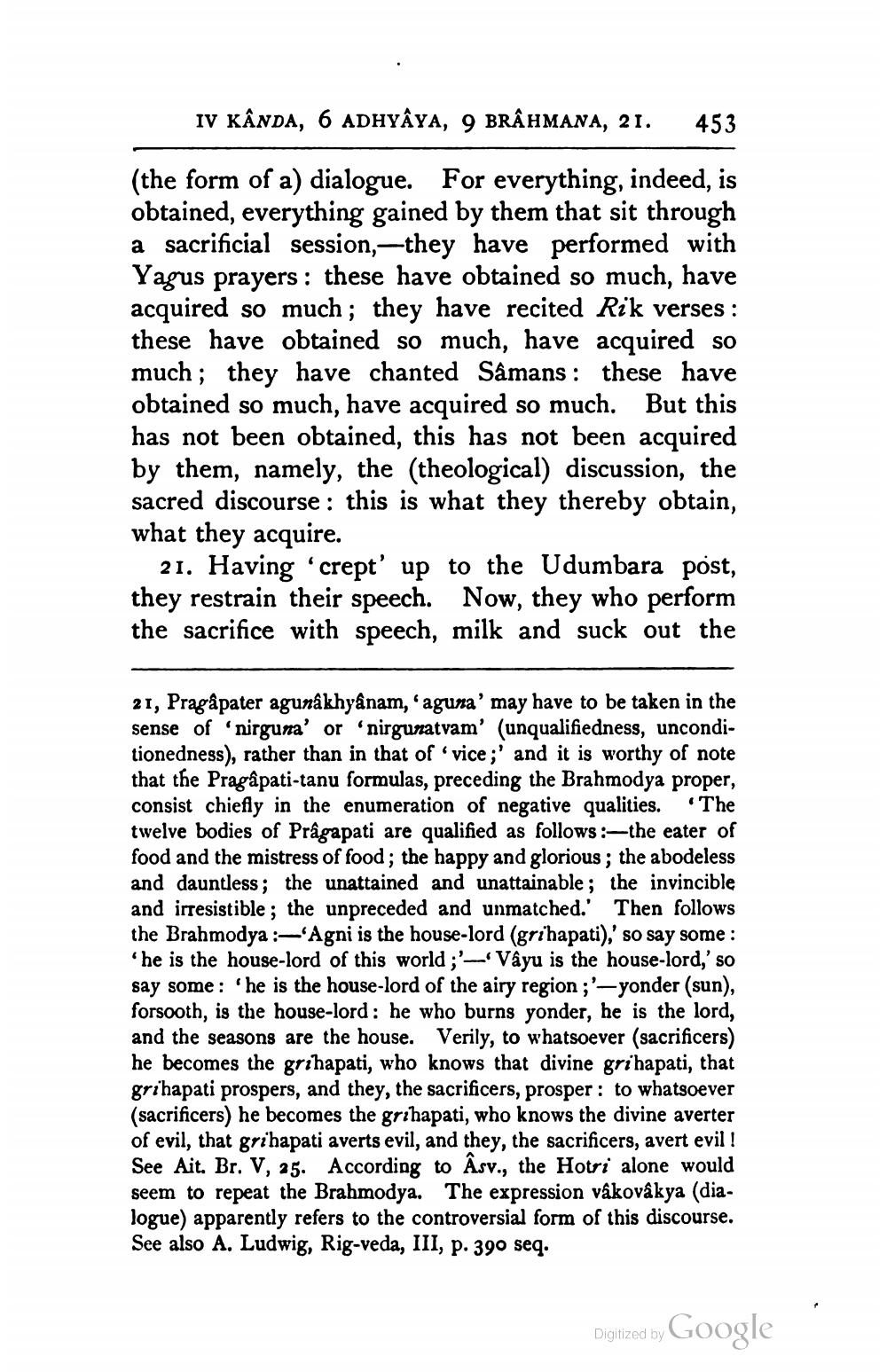________________
IV KÂNDA, 6 ADHVẬYA, 9 BRÂHMANA, 21.
453
(the form of a) dialogue. For everything, indeed, is obtained, everything gained by them that sit through a sacrificial session, they have performed with Yagus prayers : these have obtained so much, have acquired so much; they have recited Rik verses : these have obtained so much, have acquired so much; they have chanted Sâmans: these have obtained so much, have acquired so much. But this has not been obtained, this has not been acquired by them, namely, the (theological) discussion, the sacred discourse : this is what they thereby obtain, what they acquire.
21. Having crept' up to the Udumbara post, they restrain their speech. Now, they who perform the sacrifice with speech, milk and suck out the
21, Pragâpater agunâkhyânam, aguna' may have to be taken in the sense of nirguna' or nirgunatvam' (unqualifiedness, unconditionedness), rather than in that of vice;' and it is worthy of note that the Pragâpati-tanu formulas, preceding the Brahmodya proper, consist chiefly in the enumeration of negative qualities. The twelve bodies of Pragapati are qualified as follows:—the eater of food and the mistress of food; the happy and glorious; the abodeless and dauntless; the unattained and unattainable; the invincible and irresistible; the unpreceded and unmatched.' Then follows the Brahmodya :-'Agni is the house-lord (grihapati),' so say some:
he is the house-lord of this world ;'--Váyu is the house-lord,' so say some : "he is the house-lord of the airy region ;'- yonder (sun), forsooth, is the house-lord: he who burns yonder, he is the lord, and the seasons are the house. Verily, to whatsoever sacrificers) he becomes the grihapati, who knows that divine grihapati, that grihapati prospers, and they, the sacrificers, prosper : to whatsoever (sacrificers) he becomes the grihapati, who knows the divine averter of evil, that grihapati averts evil, and they, the sacrificers, avert evil! See Ait. Br. V, 25. According to Asv., the Hotri alone would seem to repeat the Brahmodya. The expression vâkovakya (dialogue) apparently refers to the controversial form of this discourse. See also A. Ludwig, Rig-veda, III, p. 390 seq.
Digitized by Google




